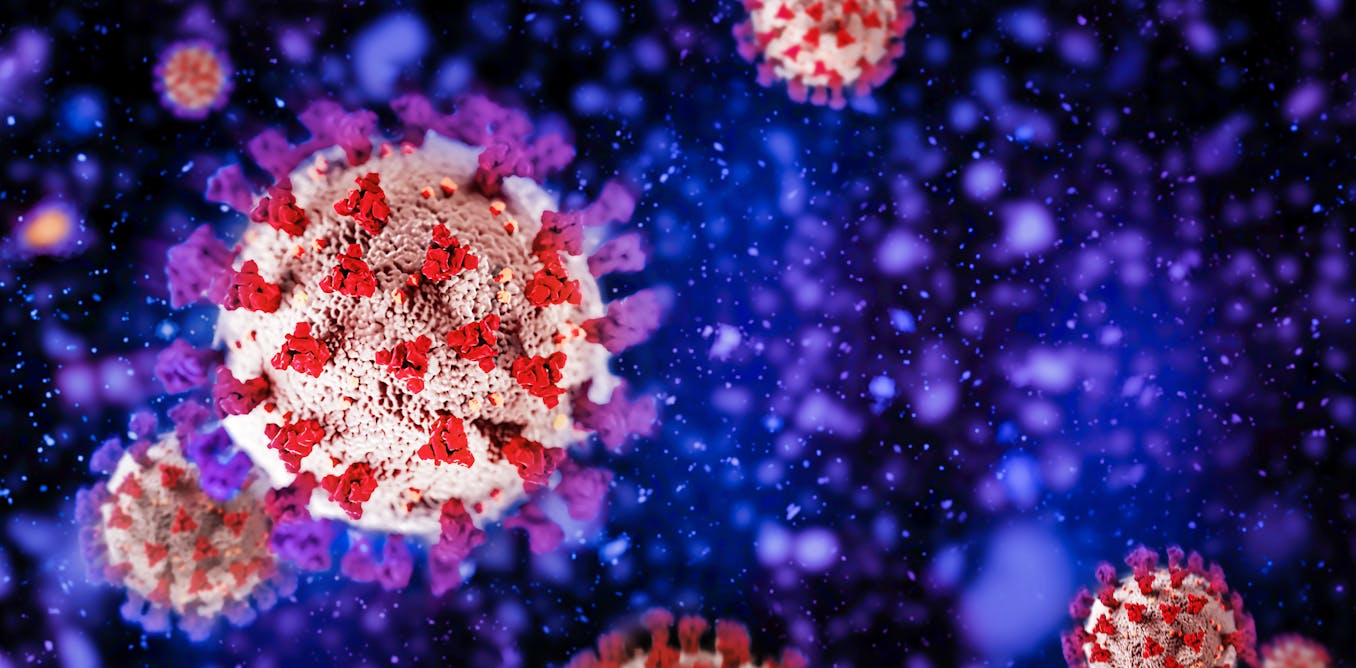What is inflammation? Two immunologists explain how the body responds to everything from stings to vaccination and why it sometimes goes wrong
Inflammation is a complicated and important part of how the immune system responds to threats to the body. But when the inflammatory response goes awry, it can lead to serious problems.
Nov. 7, 2022 • ~6 min
Gut bacteria nurture the immune system – for cancer patients, a diverse microbiome can protect against dangerous treatment complications
Patients with blood cancer undergoing stem cell transplantation have a high risk of complications. The bacteria in their gut, however, can help their immune system recover and fight infections.
July 13, 2022 • ~7 min
Social stress can speed up immune system aging – new research
While the immune system naturally gets weaker with age, social stressors like trauma and discrimination can hasten immunosenescence.
June 15, 2022 • ~6 min
'Masked' cancer drug stealthily trains immune system to kill tumors while sparing healthy tissues, reducing treatment side effects
One promising cancer treatment has been in the works for decades, but severe side effects have kept it out of the clinic. A reengineered version may offer a way to safely harness its potent effects.
June 1, 2022 • ~5 min
Is the omicron variant Mother Nature’s way of vaccinating the masses and curbing the pandemic?
Some of the omicron variant’s unique properties – such as its ability to spread rapidly while causing milder COVID-19 infections – could usher in a new phase of the pandemic.
Jan. 27, 2022 • ~9 min
How mRNA and DNA vaccines could soon treat cancers, HIV, autoimmune disorders and genetic diseases
DNA and mRNA vaccines produce a different kind of immune response than traditional vaccines, allowing researchers to tackle some previously unsolvable problems in medicine.
Jan. 24, 2022 • ~9 min
Combining an HIV vaccine with immunotherapy may reduce the need for daily medication
People with HIV need to take daily medication to keep the virus at bay. A study has found that a new treatment combination could boost immunity and control virus levels even after stopping medication.
Sept. 29, 2021 • ~6 min
Immunocompromised people make up nearly half of COVID-19 breakthrough hospitalizations – an extra vaccine dose may help
People with weakened immune systems are at a high risk of severe and prolonged COVID-19 infections. An extra vaccine dose can bolster protection.
Aug. 20, 2021 • ~5 min
/
5









